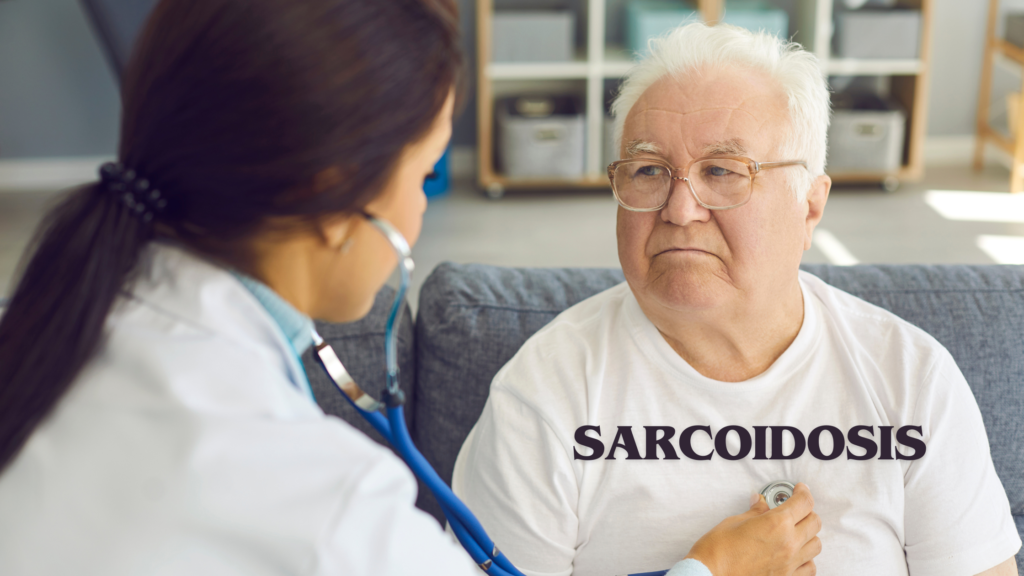Sarcoidosis
Sarcoidosis is a systemic inflammatory disease that causes the growth of tiny clumps of inflammatory cells called granulomas in various organs — most commonly the lungs, lymph nodes, skin, and eyes. When these granulomas persist, they can interfere with normal organ function.
🧪 Cause
- The exact cause is unknown.
- It’s thought to be an abnormal immune response to an environmental trigger (like infection or dust) in people with a genetic predisposition.
🔬 It’s not contagious or considered cancerous.
🫁 Commonly Affected Organs
- Lungs and lymph nodes (over 90% of cases)
- Skin
- Eyes
- Heart
- Liver
- Nervous system (in rare cases, known as neurosarcoidosis)
📋 Symptoms
General
- Fatigue
- Fever
- Weight loss
- Night sweats
Lung Symptoms (most common)
- Persistent dry cough
- Shortness of breath
- Chest pain
- Wheezing
Skin
- Reddish or purplish bumps (especially on the shins) — erythema nodosum
- Skin lesions or plaques
Eyes
- Blurred vision
- Eye pain
- Dry eyes
- Redness or sensitivity to light
Heart
- Irregular heartbeat
- Chest pain
- Heart failure symptoms (rare but serious)
🩺 Diagnosis
Sarcoidosis is often diagnosed by ruling out other conditions and through a combination of tests:
- Chest X-ray or CT scan (looks for enlarged lymph nodes or lung changes)
- Pulmonary function tests
- Blood tests (ACE levels, calcium, liver/kidney function)
- Biopsy of affected tissue (shows non-caseating granulomas)
- Eye exam
- ECG or MRI (if cardiac involvement is suspected)
💊 Treatment
Many cases of sarcoidosis resolve on their own (especially if mild). Treatment is needed when organs are affected or symptoms are significant.
Mild/No Symptoms
- Often monitored without treatment
Symptomatic or Organ Involvement
- Corticosteroids (e.g., prednisone) – first-line treatment
- Immunosuppressive drugs (e.g., methotrexate, azathioprine)
- Biologics (e.g., infliximab) – for resistant cases
- Organ-specific management (e.g., pacemaker for heart issues)
🔄 Prognosis
- Varies widely:
- Some people recover fully within 2–3 years.
- Others may have chronic or progressive disease.
- Lung involvement can lead to pulmonary fibrosis in advanced cases.
🧘 Early diagnosis and careful monitoring help reduce the risk of complications.
